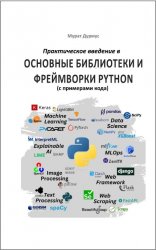- Добавил: literator
- Дата: 15-10-2023, 15:34
- Комментариев: 0
 Название: Monte Carlo Simulations Using Microsoft EXCEL
Название: Monte Carlo Simulations Using Microsoft EXCELАвтор: Shinil Cho
Издательство: Springer
Год: 2023
Страниц: 164
Язык: английский
Формат: pdf (true)
Размер: 12.6 MB
This book offers step-by-step descriptions of various random systems and explores the world of computer simulations. In addition, this book offers a working introduction to those who want to learn how to create and run Monte Carlo simulations. Monte Carlo simulation has been a powerful computational tool for physics models, and when combined with the programming language Excel, this book is a valuable resource for readers who wish to acquire knowledge that can be applied to more complex systems. Visualization of the simulation results via the Visual Basic built in Microsoft EXCEL is presented as the first step towards the subject. Prior experience with the Excel add-in VBA is kept to a minimum. In addition, a chapter on quantum optimization simulation utilizing Python is added to explore the quantum computation. Readers will gain a fundamental knowledge and techniques of simulation physics, which can be extended to STEM projects and other research projects. The programming language used in this book is the built-in Visual Basic for Application (VBA) of EXCEL. The language is simple for numerical computation and can re-write legacy BASIC programs found in other renowned books.









